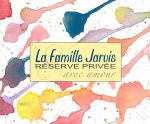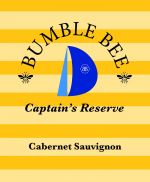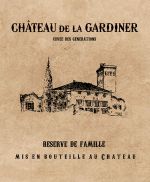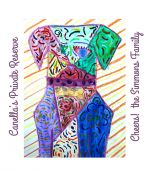

Why can’t I focus on wine today? Because it’s over 80° in the shade? Because I am exhausted from my two week vacation visiting my family in Chicago? Because one of my cats is mad at me?
A GLASSFULL OF MEMORIES
I have to confess, I’m still sipping rosé. Nice and refreshing. But, really, I am thinking about so many memories that were stirred up from this vacation. A friend of mine, who dates back to kindergarten, and I drove through the old neighborhood. There was Grandpa Rita’s house, where, when I was quite little, wooden boxes of grapes were stacked by the back door waiting to get dumped into the, what seemed at the time, giant wooden barrel. Grandpa was in there too. This is where he stomped about crushing those grapes. In hip waders as I recall. It seemed like the most natural thing in the world. I knew he was making wine. What kind of grapes these were I don’t know. But, there in the basement, he stomped, fermented and filled a good many small barrels which were then stacked on their sides in the adjoining room. Jars and jars of canned tomatoes and fragrant crocks of giardinera peppers kept them company. Some years later, when I was 10 or so, I got on my bicycle and rode over to visit my grandma. We lived about two blocks down from them on the same street. In broken Italian/English she insisted that I take some wine to my dad. She handed me a glass gallon jug of wine. Whoa! I proceeded to wobble and lean, nearly toppling over, all the way home. Thank all those Italian saints of wine it made it home intact. Amen!
And so this gets me to thinking. How many of our grandfathers, newly arrived in this world, made wine for their families? And, historically, what role did these immigrants play in the wine industry?
As it turns out, well, everything.
ITALIAN ROOTS IN WALLA WALLA
Let’s look at our own state of Washington. I’ll just focus on Walla Walla for now. I found an informative article on HistoryLink.org by Rita Cipalla about Italian American wine makers in Walla Walla. In view of my being half Italian and the story above, of course this article interested me.
Briefly, many early Italian settlers found their way to Eastern Washington in the 1800’s. Most were farmers and some were experienced winemakers. But they all recognized the potential of the Walla Walla region for farming and growing grapes.
One of the first was Frank Orselli. He is believed to be the first Italian to arrive in the Walla Walla Valley. Born in 1833 in Lucca, he immigrated to America as a young man, served in the US Army and came to Fort Walla Walla in 1857. And there he stayed. He planted vegetables, grapes and fruit trees. In addition to his farm, he opened the California Bakery where he sold baked goods, (Mrs. Orselli?) groceries, tobacco, liquor and everything else including wine. Here we have it, his store became Walla Walla’s first tasting room! He had the largest winery in the valley and expected to manufacture wine on a large scale. To that end, by 1882 locally produced wine was available in all of Walla Walla’s saloon’s.
As Orselli’s wine business was becoming locally famous, another Italian, Pasquale Saturno showed up. From the island of Ischia near Naples, he arrived in Walla Walla in January 1876. I guess he must have liked it because he sent for his wife and three kids to join him.
A GROWING INDUSTRY
Primarily a vegetable farmer, Saturno also grew grapes on 2 acres of land he owned behind his farm. He also understood that he had a ready-made market for his fresh produce and wine in all of those soldiers stationed at nearby Fort Walla Walla. But his vineyard was too small. So he began importing 2 to 4 tons of Zinfandel grapes from California by rail. He hooked up with fellow immigrant Joseph Tachi, and together, they sponsored other Italian families to come join them. When these families arrived, they would work on the farms or in the vineyards until they had paid back their fare.
The Saturno property remains in the family’s possession today. Reduced from 88 acres to eight, it was listed on the national register of historic places in 1980. Many of their winemaking and personal artifacts can be seen today on display at the Fort Walla Walla Museum. The exhibit also includes a small vineyard of Black Prince grapes, a variety used by early Italian families as a decent table, juice, and wine grape. I looked up Black Prince and found that is another name for Cinsault.
MODERN DAY INFLUENCES
Unfortunately, Prohibition put a halt to commercial winemaking in the valley, a situation that remained unchanged until Gary Figgins started Leonetti Cellar in 1977. His grandparents Francesco and Rosa Leonetti emigrated from Calabria in 1902. They planted a small vineyard and Figgins’s first Cabernet Sauvignon grapes were grown and harvested on an acre of hillside behind the original homestead. These are the oldest Cabernet Sauvignon grapes in the Walla Walla valley. And I think we are all familiar as to how this story ends! World renowned, award winning wines that really put Walla Walla and Washington state on the map.
The Italian contributions to Walla Walla’s wine industry were huge and their impact felt for generations, says wine educator Regina Daigneault. “The early Italians not only planted vines from their home country but they also planted their passion for growing and raising grapes in Walla Walla and throughout eastern Washington. Whether they planted Tuscan, Piemonte, or southern Italian varieties, they had the foresight to see that eastern Washington could one day produce wines of amazing depth, character and complexity.”
So I found my subject. It sprang from a memory of my heritage. Imagine how many other immigrants, Italian and so many others from so many countries, who have added their own varieties of vines, skills, hard work and creativity to the abundance of this nation. We would be so much less without them. Imagine.
Cheers!
P.S. The other half of my ethnic heritage is Polish. And, wow, Polish wine dates back to the founding of the country in the 10th century. Who knew? Well, not me I guess. But I think it’s worth some investigation. Anyone else interested in eastern European wines?
Cheers y’all!
~ Peggy












0 Comments